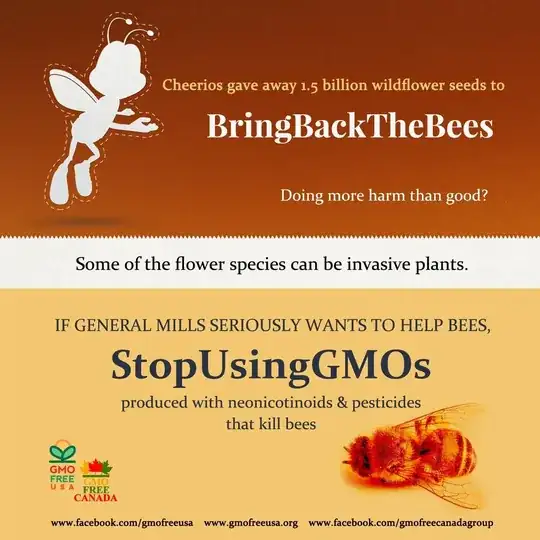An image is making the rounds on some Facebook groups:
It appears to have originated from an anti-GMO website.
Although the image is making multiple claims, there is an implied claim that GMOs are harmful to bees in and of themselves, not just with the use of neonicotinoids or pesticides. Else, it would make no sense to make bold "Stop Using GMOs" if the premise were that it's those chemicals alone that are killing the bees.
From what I have read, there isn't anything to suggest that neonicotinoids are only used on GMOs or that GMOs require the use of that chemical, specifically. A quick Google search on an actual link between GMOs and bee deaths turns up primarily unreliable sources.
